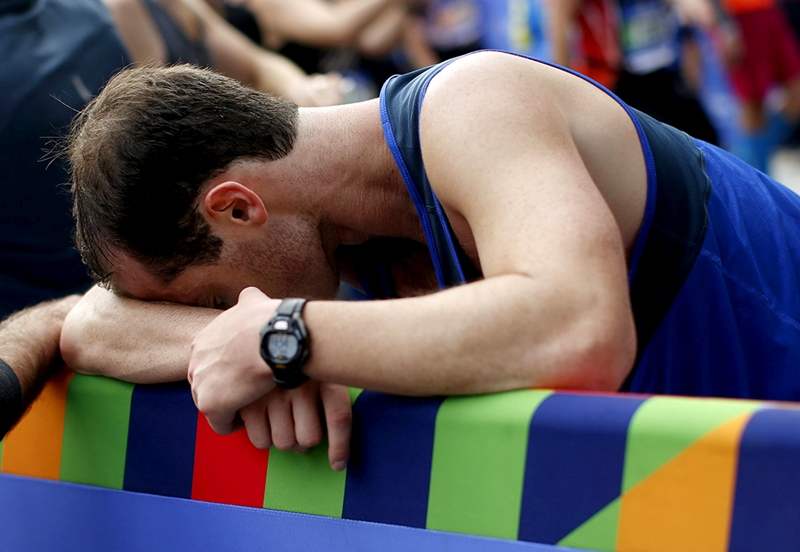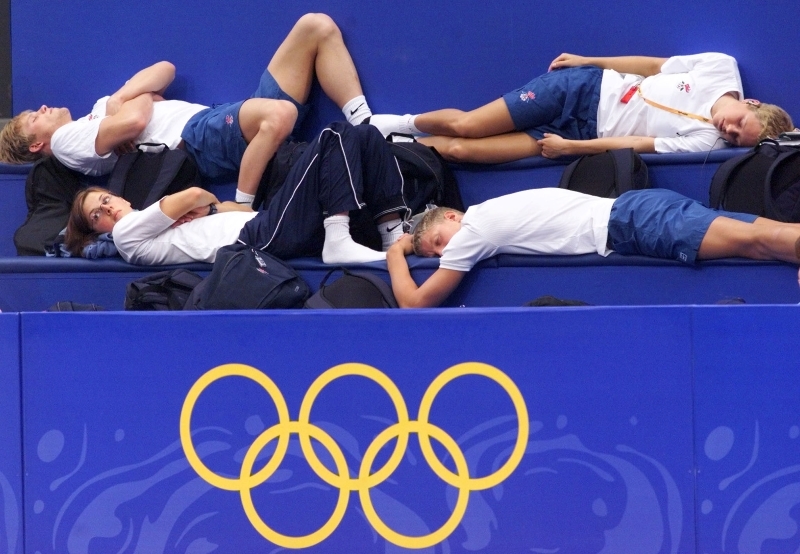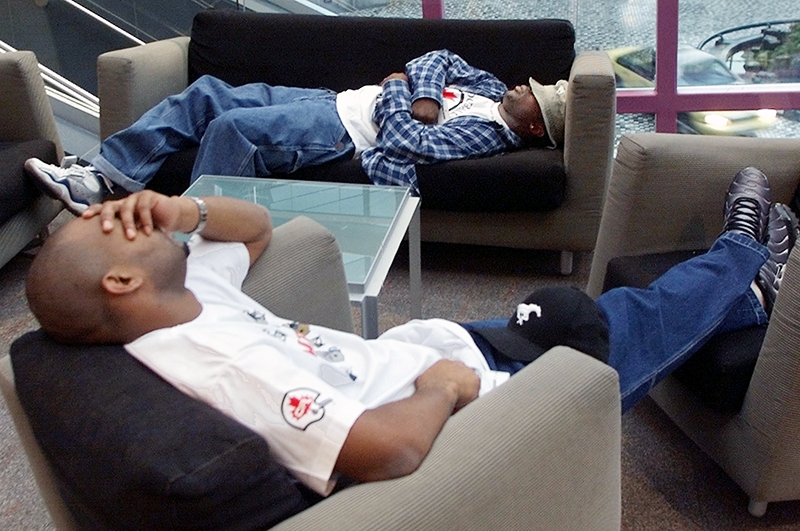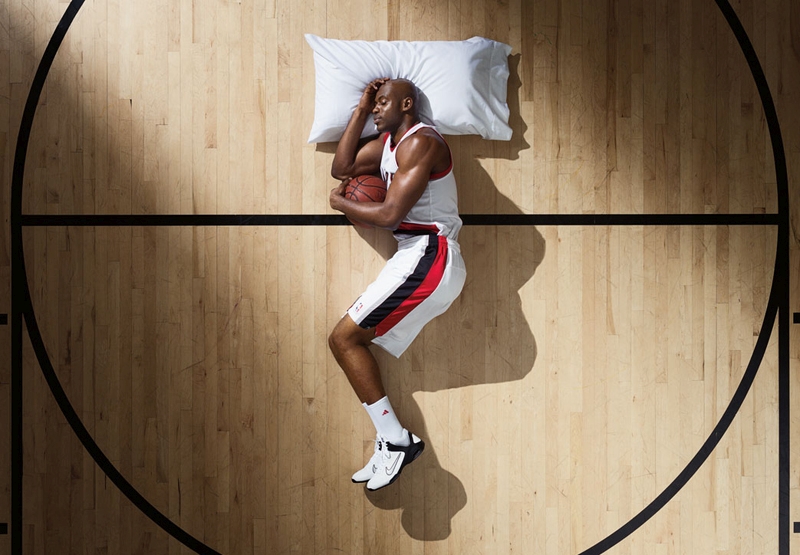You are viewing 1 of your 1 free articles. For unlimited access take a risk-free trial
Mass with class: why sleep matters!

Andrew Sheaff explores new research on how sleep amounts affect body composition during weight-loss regimes
The importance of sleep has certainly garnered attention in the medical community as it relates to chronic disease. Insufficient sleep has been shown to be related to increased mortality(1) and compromised immunity(2). As significant as that may be, these effects tend not to concern the sporting community as much as they should.However, overlooking sleep can be a big mistake, and not just because you could be compromising your health. For the avid athlete, a lack of sleep could be compromising performance, and that is something that matters to just about every individual pursuing sport. As we’ll see below, the amount of sleep you’re getting can directly impact one of the factors critical to performance, the maintenance of optimal body composition. Let’s see what the evidence has to say.
Body composition and sleep
Particularly in the endurance sports, maintaining a body composition best suited for your individual needs and goals is critical for achieving your best performances. As you have to move your body for extended periods of time, it makes sense that you want to optimize your body composition based upon what’s healthy and realistic for you. Many individuals will find themselves slimming down in anticipation of the competitive season as they return to training, or as they ramp up their training. To do so, most dial in their nutrition and their training. However, sleep will rarely be considered as a critical component of their preparation. Unfortunately, this omission may be a big mistake.Impaired or insufficient sleep has been shown to be related to increased weight gain in many populations(3-5), and these effects have been related to various negative physiological changes. However, it’s not clear what the impact of sleep is in individuals that are actively trying to lose weight. Does sleep deprivation impair the ability to lose weight? Does sleep deprivation impact which type of tissues any weight loss comes from? Thankfully, researchers have sought to answer these questions in a short-term study examining weight loss in subjects experiencing sleep deprivation(6).
In the study, ten individuals participated in a 14-day study where they restricted their calories. The interesting part of the study was that the subjects were divided into two groups, where they slept for either 5.5 or 8.5 hours per night. Calories were strictly controlled, and there was no difference between the two groups in terms of dietary approaches. Over the short period of the study, both groups lost almost the same amount of weight (2.9kg vs. 3.0 kg for the 8.5hr and 5.5hr sleep groups, respectively). The really interesting finding however was the type of weight that was lost. The 5.5hr group lost 2.4kg of muscle and only 0.6kg of fat. They lost 4x as much muscle as fat! In contrast, the 8.5hr group only lost 1.5kg of muscle while losing 1.4kg of fat – ie they stayed leaner and more muscular (see figure 1).
Figure 1: Fat and muscle losses in low and sufficient sleep groups

Green bars = 8.5 hour sleep group; red bars = 5.5-hour sleep group. The 8.5 hour group lost less muscle and more fat despite a matched calorie intake and activity level.
So, what’s the big takeaway? Surprisingly, a lack of sleep doesn’t seem to impair weight loss, provided you’re able to strictly control your calories – surprising because it’s well documented that tiredness can lead to poor food choices(7). If you’re aiming to drop down to a racing weight, you’ll be able to do so even if you’re not taking care of your sleep. However, any weight loss efforts should be always aimed at improving performance, and in that respect, the type of body mass you lose matters. When you’re not sleeping enough, you may lose up to four times as much muscles as you do fat! While you might accomplish your goal of ‘weight loss’, losing four times as much muscle as fat is much more likely to hurt your performance than help it. If you choose to get down to your racing weight, make sure you do so while getting adequate sleep.
Now, you may be thinking that because you sleep a lot more than 5.5 hours per night, so you have nothing to worry about. However, researchers recently performed a similar study where subjects only restricted their sleep for one hour per night during the week, and they were allowed to sleep for an extra hour of sleep per night on the weekend(8). This is a lot like the typical work week for most people, followed by catching up on sleep during the weekend. Due to the extra sleep on the weekend, the sleep restriction group only missed out on three hours of sleep during each week of the 8-week study. That’s a lot less sleep loss compared to three hours per day during the previous study. The control group slept normally and maintained a consistent sleep schedule each day. Both groups restricted their calories in a similar manner.
It turns out that the impact of even minor sleep deprivation can be just as significant. In the sleep-restricted group, 58% of their weight loss came from fat and 38% came from muscle! In contrast, 82% of the weight loss came from fat and only 16% was from muscle for the control group. Further, the control group actually improved their resting metabolic rate (calorie burn at tickover) by 79 calories per day, whereas the sleep-restricted group saw a decrease in their metabolic rate by 11 calories per day. These differences are significant, considering the relatively small of sleep deprivation experienced in the sleep restriction group.
Practical implications
The bottom line is to make sure your sleep is adequate and regular if you’re aiming to optimize your weight loss efforts. While it appears that you’ll be able to lose weight regardless of whether you’re sleep deprived or not, sleep deprivation can significant impact where that weight loss comes from. Keep in mind that this advice applies not only to those actively trying to reduce their body mass, but also to those that may inadvertently experience weight loss. For instance, if you’re planning a build-up in your training, make sure you’re sleeping well to ensure that any loss of mass that does occur comes from the right places, or you may find your performances compromised when you lose the muscle that powers your performance. Sleep well, maintain your muscle mass, and race fast!References
- J Am Heart Assoc. 2017 Sep 9;6(9):e005947. doi: 10.1161/JAHA.117.005947.
- Pflugers Arch. 2012; 463(1): 121–137.
- Open respir Med J. 2011;5:31-43. doi: 10.2174/1874306401105010031.
- Proc Natl Acad Sci U S A. 2013 Apr 2; 110(14): 5695–5700.
- Sleep. 2008 May 1; 31(5): 619–626.
- Ann Intern Med. 2010 Oct 5;153(7):435-41. doi: 10.7326/0003-4819-153-7-201010050-00006.
- Br J Nutr. 2014 May 28;111(10):1898-904
- Sleep. 2018 May 1;41(5). doi: 10.1093/sleep/zsy027.
Related Files
Newsletter Sign Up
Testimonials
Dr. Alexandra Fandetti-Robin, Back & Body Chiropractic
Elspeth Cowell MSCh DpodM SRCh HCPC reg
William Hunter, Nuffield Health
Newsletter Sign Up
Coaches Testimonials
Dr. Alexandra Fandetti-Robin, Back & Body Chiropractic
Elspeth Cowell MSCh DpodM SRCh HCPC reg
William Hunter, Nuffield Health
Keep up with latest sports science research and apply it to maximize performance
Today you have the chance to join a group of athletes, and sports coaches/trainers who all have something special in common...
They use the latest research to improve performance for themselves and their clients - both athletes and sports teams - with help from global specialists in the fields of sports science, sports medicine and sports psychology.
They do this by reading Sports Performance Bulletin, an easy-to-digest but serious-minded journal dedicated to high performance sports. SPB offers a wealth of information and insight into the latest research, in an easily-accessible and understood format, along with a wealth of practical recommendations.
*includes 3 coaching manuals
Get Inspired
All the latest techniques and approaches
Sports Performance Bulletin helps dedicated endurance athletes improve their performance. Sense-checking the latest sports science research, and sourcing evidence and case studies to support findings, Sports Performance Bulletin turns proven insights into easily digestible practical advice. Supporting athletes, coaches and professionals who wish to ensure their guidance and programmes are kept right up to date and based on credible science.














